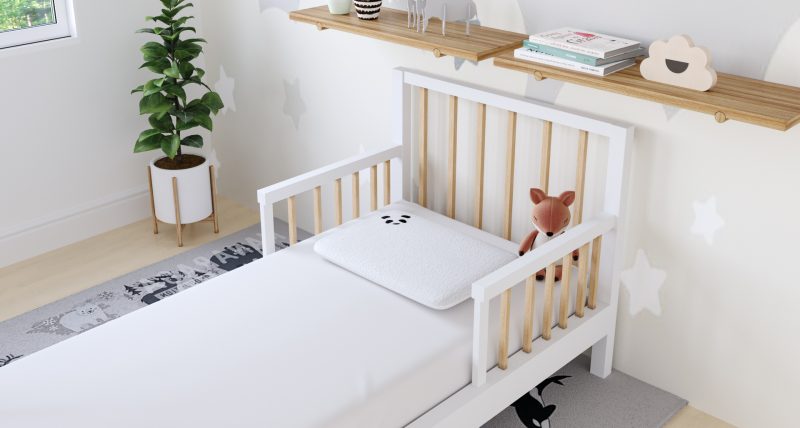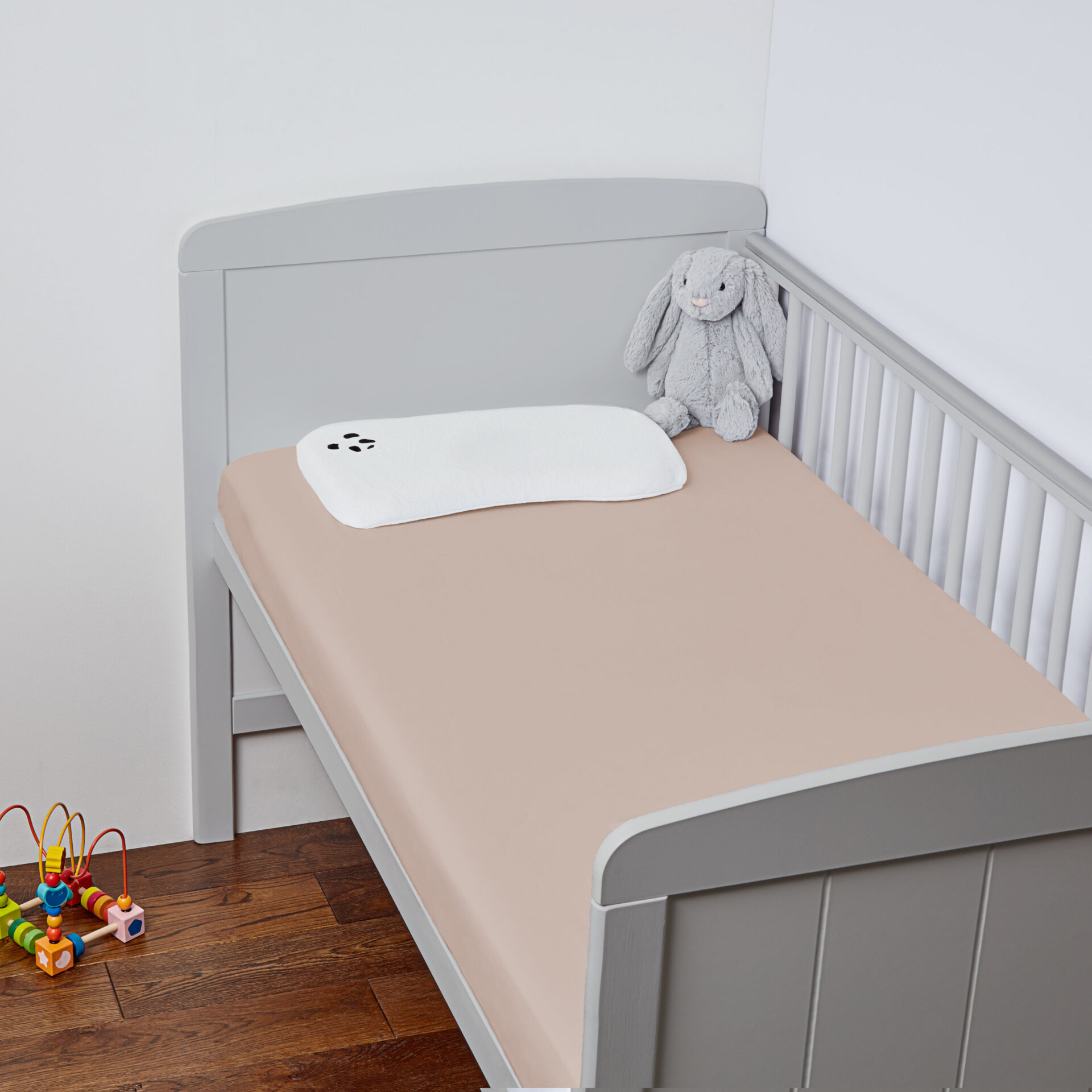How Much Sleep Do Kids Need?
Last updated on August 29th, 2023 at 02:59 pm
Understanding the Importance of Sleep for Children’s Growth and Development
Sleep plays a crucial role in promoting children’s growth, development, and overall well-being. Parents must understand the varying kids’ sleep needs by age and provide a nurturing sleep environment for their child. The older your little one gets, the more their sleep pattern will change – as well as that, various factors can affect children’s sleep guidelines. We also have some practical tips for encouraging healthy sleep habits, which are vital from day one.
Newborns to infants (0-3 months)
During the first few months of life, newborns and infants require the most sleep. They typically sleep for 14-17 hours a day, often in shorter periods spread right throughout the day and night. Their sleep is characterised by frequent awakenings for feeding, changing, and comfort. At this age, night-time sleep isn’t too different from naps and daytime sleep – it all blends together when they’re a newborn!
Infants to toddlers (4-12 months)
As infants grow, their sleep patterns begin to shift, and they tend to settle into more regular nap and night-time sleep routines – hopefully, at least! Babies between 4-12 months generally require 12-16 hours of sleep, including multiple daytime naps. Night-time sleeping durations generally increase, and some infants may start sleeping for longer stretches at night with shorter naps in the day. They do still require those daytime snoozes and will usually feed in between.
This age really is the perfect time to start establishing a bedtime routine in the run-up to night-time sleep: bath, story, cuddle and then into their cot. The earlier you do this, the easier it should be as you are helping their brain get into the habit of knowing when it’s time for bed. It’s something that will stand them in good stead for the rest of their childhood, showing that sleep is a really important part of life.
Toddlers to preschoolers (1-3 years)
In the toddler to preschool stage, the recommended sleep for kids is around 11-14 hours each day, including naps. At this age, sleep patterns start to become more consolidated, with most children transitioning to a single nap during the day. There may be some challenges with sleep at this age, especially if they are in nursery and their nap time has to change – it is important to help your child adapt to these changes. It is also around age two that children might start to experience nightmares for the first time, which can be really scary; their imagination is starting to run wild now. Helping your child through this will encourage them to have a healthy relationship with sleep.
Preschoolers to school-age children (3-6 years)
Sleep duration for youngsters of this age is approximately 10-13 hours of sleep per night. While some children may still benefit from a daytime nap if possible, it is at this age when many little ones will gradually phase out daytime sleep altogether. Creating a calming bedtime routine and ensuring a conducive sleep environment can help facilitate quality sleep during this stage, which is very necessary as they start school and need to concentrate. The school also has many germs, and sleep boosts their immune system! Keep going with that bedtime routine, allowing time for homework, a bath or shower and playtime, and sticking to a set bedtime.

School-age children (6-12 years)
School-age children should aim for 9-12 hours of sleep to support their growth, cognitive development, and academic performance. This is adequate sleep for children of this age. However, as children become involved in extracurricular activities, it might be harder to ensure they get enough sleep – this is why it is so important to ensure their bedroom is a calm and inviting place that promotes sleep! That way, they will fall asleep quickly if they’re not always getting to bed as early as they should be. Kids bamboo bedding really helps with keeping them comfortable at night, a key factor in ensuring a good night’s sleep. Children’s sleep duration is definitely improved when they feel comfy at night.
Which factors affect kids’ sleep?
As we know, there are many different factors which can impact your children’s sleep patterns. Screen time is a huge one, and while screens do have their place in a child’s life, they should be monitored – and restricted in the run-up to bedtime! Screen time at night can keep your child awake as it interrupts cortisol (the sleepy hormone) production. Check that their diet isn’t influencing their sleep quality; keep sugar to a minimum, especially before bedtime. Their bedroom should be somewhere that promotes a sense of calm and helps them drift off; it can be difficult to keep toys and other distractions out of the bedroom, especially if you live in a flat or small house. But if you are clever, this helps them separate sleep and play.
Recognising sleep deprivation in children
Sleep deprivation can have long-term effects on your child’s health and happiness. It is linked to many chronic health problems, so you should do everything you can to avoid your child suffering from a lack of sleep. Insufficient sleep can increase temper tantrums or mood swings, needing more naps when they’ve outgrown that stage, hyperactivity and oversensitivity. This is definitely something worth keeping an eye on, as kids sleep requirements do change over time.
What are some practical tips for encouraging healthy sleep habits?
First of all, a consistent sleep schedule is a must. You will hear this much as a parent, but its importance cannot be overstated – set a bedtime and establish a routine that you stick to each night. They should have had a bath and have their pyjamas on at a set time, followed by a story and some cuddles before bed; obviously, this will change as they get older, but you should always stress the importance of a routine, whatever it consists of.
Wrap them up in magic
Breathable Bamboo Bedding
Encourage your children to wind down before bed, no matter what age. Once they outgrow the need for a story on your lap, suggest independent reading or something else that relaxes them: yoga, puzzles, pampering, etc. It is also important for a parent to have some strategies at hand for addressing bedtime resistance. Most children go through a phase of refusing to go to bed, but you need to be open and honest with them about why sleep is so important. You should also model healthy sleep by following your own set bedtime routine and not staying up too late. Other strategies can include rewarding them for good bedtime behaviour and allowing them to be more involved in their sleep routine.
Navigating sleep challenges
Sleep and children often don’t go together – there will be challenges along the way. These might include nightmares (or even night terrors) and sleepwalking. Try to address these early on, and be receptive to what your children are experiencing or worrying about. Nightmares and sleepwalking can be linked to stress, so be sure to sit down with them and ask what’s going on. You will likely also come across bedwetting; most children go through this, and it is important not to shame your little one for this. Instead, talk to them about it and explain the importance of going to the toilet before bed, getting up at night if they need to use it again, and letting somebody know if this has happened so they aren’t uncomfortable all night.
How much sleep do kids need?
How many hours of sleep for kids changes depending on how old they are – it is really important, however, that you stick to how much sleep is necessary for their age. It is one of the most vital parts of life as it helps them grow and develop, boosts their immune system, and allows them to focus during the day. You should address your child’s unique needs when it comes to sleep; be intuitive in terms of their naps, support them through nightmares, and ensure they are comfortable every night. With these sleep recommendations for children, hopefully, you’ll all be sleeping through in no time…
FAQ
What are the signs that my child may not be getting enough sleep?
Last updated on August 29th, 2023 at 02:59 pm
Signs of insufficient sleep in kids may include excessive daytime sleepiness, difficulty waking up in the morning, moodiness, difficulty concentrating, and decreased academic performance.
How does inadequate sleep affect my child's health?
Last updated on August 29th, 2023 at 02:59 pm
Insufficient sleep can impact your child’s physical health, cognitive function, mood, and overall well-being. It may lead to issues like obesity, a weakened immune system, and difficulties in school.
How can I help my child establish healthy sleep habits?
Last updated on August 29th, 2023 at 02:59 pm
Creating a consistent sleep routine, maintaining a comfortable sleep environment, limiting screen time before bedtime, and encouraging daily physical activity can all contribute to healthy sleep habits.
Are naps important for children's sleep?
Last updated on August 29th, 2023 at 02:59 pm
Yes, naps benefit younger children, helping them catch up on missed sleep and promoting overall well-being. However, naps should be appropriately timed to avoid interfering with nighttime sleep.
Can my child's sleep needs change as they grow?
Last updated on August 29th, 2023 at 02:59 pm
Yes, children’s sleep needs vary based on age and developmental stage. It’s important to monitor their sleep patterns and adjust their schedules accordingly.
How can I create a bedtime routine that supports my child's sleep needs?
Last updated on August 29th, 2023 at 02:59 pm
Establishing a consistent and calming bedtime routine can signal to your child’s body that it’s time to wind down. Activities like reading, dimming lights, and gentle music can help prepare them for sleep.
Explore our range:
Baby Bamboo Muslins
Rated 5 out of 5£24.00 – £40.00Baby Memory Foam Bamboo Pillow
Rated 4.95 out of 5£24.95Bamboo Mattress Protector
Rated 5.00 out of 5£19.95 – £50.00Kids 100% Bamboo Bedding
Rated 5 out of 5£32.95 – £40.00





